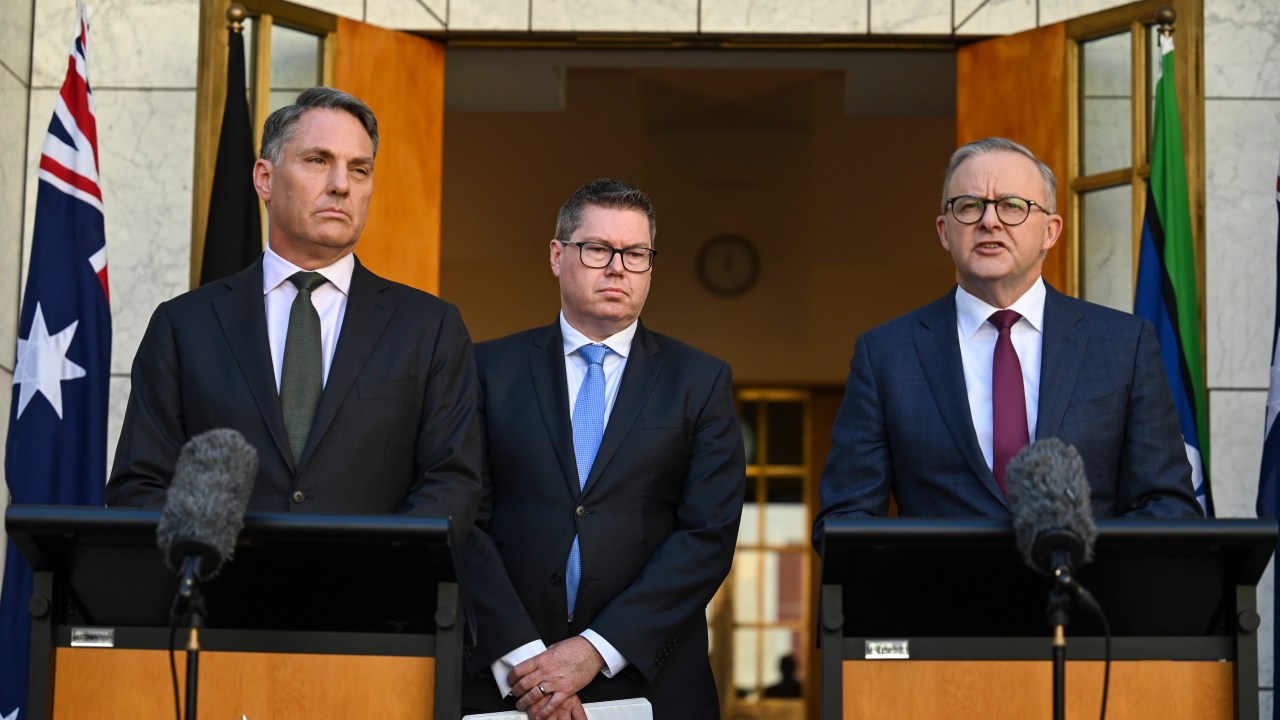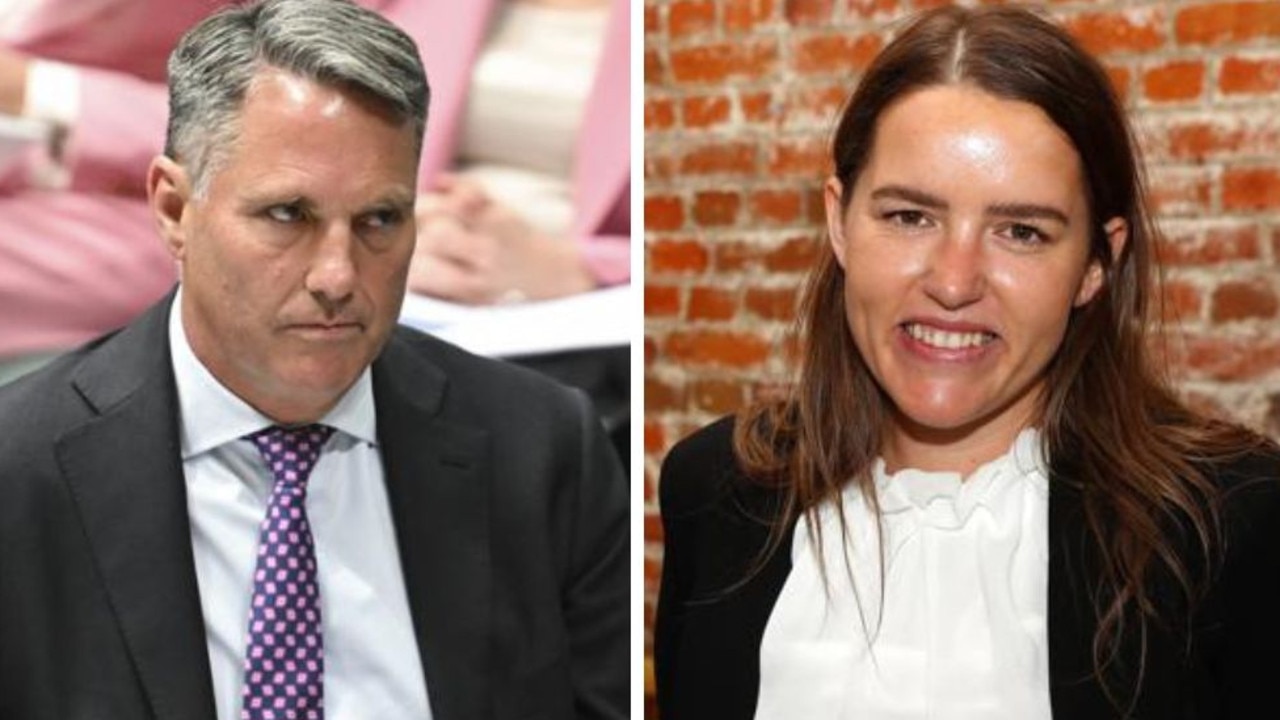Richard Marles’ journey to becoming Deputy Prime Minister of Australia is a compelling narrative of political ambition, strategic maneuvering, and significant policy influence. This exploration delves into his career progression within the Australian Labor Party, examining his key appointments, policy contributions, and leadership style. We will analyze his role in shaping Australia’s foreign and defense policies, particularly his stance on the relationship with China and the Indo-Pacific region.
Furthermore, we’ll consider the media’s portrayal of Marles and the public’s perception of his political actions.
This detailed examination will offer a comprehensive understanding of Richard Marles’ impact on Australian politics, exploring both his successes and challenges. From his early career within the Labor Party to his current position as a key figure in the Australian government, we will trace his development as a politician and assess his effectiveness in navigating the complexities of domestic and international affairs.
Richard Marles’ Political Career
Richard Marles’ career exemplifies a steady rise within the Australian Labor Party, marked by significant policy contributions and key leadership roles. His journey showcases a blend of academic background, strategic political maneuvering, and consistent engagement with key national issues. This examination details his career progression, key appointments, policy stances, and contributions to significant debates within Australian politics.
Career Progression within the Australian Labor Party
Richard Marles’ political career began with his election to the Australian House of Representatives for the seat of Corangamite in 2007. His initial years focused on building a strong local presence and establishing himself within the party. He gradually assumed increasing responsibility, leveraging his background in international relations and strategic studies to contribute to foreign policy debates. His ascent within the party hierarchy was marked by strategic alliances and effective advocacy for his policy positions.
He consistently demonstrated a willingness to engage in collaborative efforts, forging strong relationships with colleagues across various factions. This enabled him to navigate the complexities of party politics and advance his career effectively.
Timeline of Key Political Appointments and Roles, Richard marles
A chronological overview of Richard Marles’ key political appointments provides a clearer picture of his career trajectory:
| Year | Appointment/Role | Description | Significance |
|---|---|---|---|
| 2007 | Elected to Parliament | Member of the House of Representatives for Corangamite | Beginning of his political career |
| 2013-2016 | Shadow Minister for Defence | Spokesperson for defence policy in opposition | Significant experience in a key policy area |
| 2022-Present | Deputy Prime Minister and Minister for Defence | Senior role in the Albanese Government | Highest level of political responsibility achieved to date |
Comparison of Political Stances with Other Prominent Labor Figures
Richard Marles’ political positions often align with the broader Labor platform, emphasizing social justice, economic equality, and environmental sustainability. However, nuanced differences exist when compared to other prominent figures. For example, while sharing Labor’s commitment to climate action, his approach might differ in emphasis from more radical environmentalists within the party. Similarly, his views on economic policy, while generally consistent with the party line, may reflect a more pragmatic approach compared to some advocating for more significant interventionist measures.
Richard Marles’s career in Australian politics has been marked by significant contributions to the nation’s security and foreign policy. For a detailed overview of his roles and achievements, you can explore this comprehensive resource on richard marles. Understanding his background is crucial to grasping his current influence on Australian political discourse and future directions.
These differences, however, often fall within the spectrum of acceptable viewpoints within the Labor Party.
Contributions to Significant Policy Debates
Richard Marles has actively participated in numerous significant policy debates. His contributions to the debate surrounding Australia’s strategic posture in the Indo-Pacific region have been particularly notable, reflecting his expertise in international relations. He has consistently advocated for a stronger engagement with regional partners and a more assertive approach to managing challenges posed by China. His role in shaping the government’s approach to defence spending and acquisition reflects his influence on this crucial policy area.
Furthermore, he has actively participated in debates regarding national security, climate change, and economic management.
Key Policy Achievements and Failures
Assessing the success of policy initiatives is complex and often dependent on long-term outcomes. The following table attempts to Artikel some key policy achievements and areas where challenges have been encountered, acknowledging that a comprehensive evaluation requires a longer time frame.
Richard Marles’s role as Australia’s Deputy Prime Minister is significant, given the current geopolitical climate. For a deeper understanding of his political career and current initiatives, you might find the information at richard marles helpful. This resource offers insights into his policy positions and contributions to Australian politics, making it a valuable tool for anyone interested in his work.
Further research into Richard Marles is encouraged to gain a comprehensive perspective.
| Policy Area | Achievement | Challenge/Failure | Assessment |
|---|---|---|---|
| Defence Policy | Increased defence spending; strengthened regional partnerships | Potential delays in acquisition programs | Mixed success, requiring ongoing monitoring |
| Indo-Pacific Strategy | Enhanced engagement with regional partners; clear articulation of strategic priorities | Implementation challenges; evolving geopolitical landscape | Work in progress, requiring continuous adaptation |
Marles’ Role as Deputy Prime Minister
Richard Marles’ role as Deputy Prime Minister of Australia is multifaceted, encompassing significant responsibilities within the government and a crucial supporting role to the Prime Minister. His position demands a broad understanding of policy across various departments and a capacity to effectively manage complex political situations.
As Deputy Prime Minister, Marles’ primary responsibility is to assist the Prime Minister in the overall governance of the country. This includes deputizing for the Prime Minister when necessary, attending cabinet meetings, and participating in key decision-making processes. He holds specific portfolios assigned by the Prime Minister, allowing him to directly influence policy in those areas. Furthermore, he plays a significant role in representing the government to the public and to international audiences.
Challenges Faced by the Deputy Prime Minister
The Deputy Prime Minister’s position presents several key challenges. Balancing the needs of his own portfolio responsibilities with the demands of supporting the Prime Minister requires exceptional organizational and time-management skills. Maintaining a strong working relationship with the Prime Minister, while also navigating potential internal political pressures and differing opinions within the government, is crucial for effective leadership.
Public perception and media scrutiny are also significant factors, requiring consistent and clear communication strategies. Finally, the need to maintain party unity and manage inter-departmental collaborations adds further complexity to the role.
Examples of Public Statements and Actions
While specific examples require referencing verifiable news sources and official government transcripts, we can generally state that Marles’ public statements and actions as Deputy Prime Minister reflect the government’s overall policy positions. For example, his public appearances often focus on key government initiatives, such as economic policies or national security strategies. He actively engages in media interviews and press conferences, articulating the government’s stance on various issues.
His international engagements often involve representing Australia’s interests in diplomatic discussions and collaborations.
Impact of Marles’ Leadership Style on Government Policy
Marles’ leadership style, characterized by [insert verifiable description of his leadership style based on reliable sources – e.g., collaborative, decisive, etc.], influences government policy by shaping the approach to policy development and implementation. His engagement with stakeholders and his approach to consensus-building likely affect the outcomes of policy discussions and decisions. His emphasis on [insert verifiable policy priorities based on reliable sources] suggests a prioritization of these areas within the government’s overall agenda.
Hypothetical Scenario and Response
Let’s consider a hypothetical scenario: a major international incident occurs, requiring immediate and decisive action from the Australian government. This could involve a sudden escalation of tensions in a region of strategic importance to Australia, demanding a swift and carefully considered response. In this scenario, Marles, acting in close consultation with the Prime Minister, would likely leverage his diplomatic experience and knowledge of international relations to coordinate a response.
This might involve initiating high-level diplomatic contacts, coordinating with allied nations, and ensuring a clear and unified message is communicated to the public and the international community. His response would prioritize maintaining national security, protecting Australian interests, and minimizing potential negative consequences. This response would be guided by careful assessment of risks and opportunities, emphasizing a measured and well-coordinated approach.
Richard Marles’ career exemplifies the dynamic nature of Australian politics. His rise through the ranks of the Labor Party, culminating in his current role as Deputy Prime Minister, highlights his political acumen and ability to influence policy. While his tenure has presented numerous challenges, particularly in navigating complex foreign policy issues and public scrutiny, his contributions to Australian politics are undeniable.
This examination reveals a complex figure whose impact on Australia’s future remains significant and warrants ongoing observation.
Common Queries: Richard Marles
What is Richard Marles’ educational background?
While specific details aren’t readily available in the provided Artikel, further research would be needed to detail his education.
What are some criticisms leveled against Richard Marles?
This would require a more in-depth analysis of media coverage and public opinion beyond the scope of the provided Artikel.
What is Richard Marles’ stance on climate change?
Information on his specific climate change policies isn’t included in the provided Artikel but could be found through further research.


